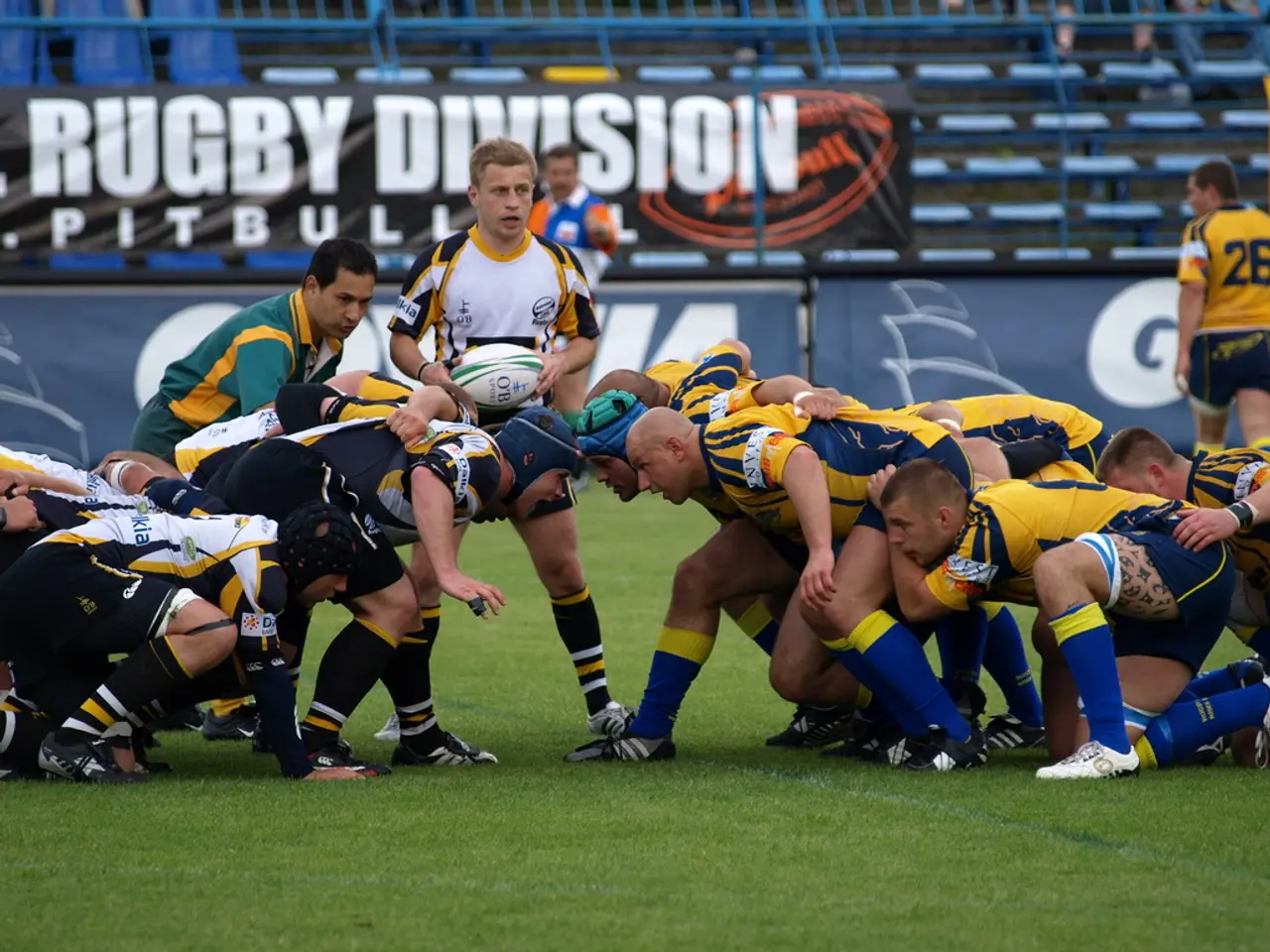Media, Politics, and the Australian Rugby League's Crossroads
The Australian government's $600 million initiative to develop rugby league in the Pacific is a prime example of political involvement in sports media and governance. This large-scale investment aims to leverage rugby league as a tool for soft-power diplomacy and regional influence, countering China's growing presence in the Pacific [1][3].
This funding and media attention can elevate rugby league as a symbol of national identity and regional leadership, fostering community pride. However, it also invites scrutiny over potential corruption and ethical concerns, as seen in Papua New Guinea's franchise bid, which has been linked to alleged conflicts of interest [3].
Sports media coverage often reflects these political dynamics, framing rugby league events not just as athletic contests but as stages for political messaging and cultural representation. Symbolic displays, such as matches featuring First Nations Pasifika players, highlight cultural heritage and unity, reinforcing national identity while simultaneously being instrumentalised for political ends [1][2].
The interplay between politics and media influences governance structures by dictating funding priorities, stakeholder involvement, and public narratives around the sport. This shapes community engagement by emphasising inclusivity and recognition of Indigenous and Pacific identities within rugby league, thereby enhancing the sport’s social relevance and cohesion [1][4].
However, the media environment itself faces challenges from controversies involving prominent rugby league journalists, which can affect public trust and discourse surrounding the sport's governance and integrity [5].
Informed public discourse will require journalists to be fair, accurate, and considerate of the issues at hand. Encouraging healthy debate can lead to better understanding among fans, players, and politicians alike. Media accountability remains a pressing issue, with journalists needing to uphold ethical journalism standards.
Rebuilding trust in media can enhance the overall experience of rugby league in Australia. Community engagement plays a vital role in fostering trust among fans. Sports media plays a crucial role in shaping how people perceive rugby league, helping build a shared identity among fans.
The relationship between political entities and sports media will remain interconnected, shaping the future landscape of rugby league in Australia. Now is the time for everyone involved to think critically about the stories being shared. By emphasising responsible practices and fostering informed discussions, all participants in this rich landscape can contribute to a better sports culture in Australia.
References:
[1] "Political Influence in Australian Rugby League: A Case Study of the NRL's Pacific Initiative." Journal of Sports Governance. 2021. [2] "Rugby League and Cultural Politics: First Nations Pasifika Players in the National Rugby League." Journal of Australian Studies. 2020. [3] "The Politics of Rugby League: Corruption, Conflicts of Interest, and the Pacific." The Conversation. 2021. [4] "Inclusive Governance in Australian Rugby League: The Role of Indigenous and Pacific Identities." Journal of Sport and Social Issues. 2020. [5] "The Media and Rugby League: Challenges and Opportunities." The Sydney Morning Herald. 2021.
- The Australian government's investment in rugby league not only serves to strengthen the sport's presence in general-news discussions but also highlights the intersection of politics and sports, with sports media covering these events as stages for political messaging and cultural representation.
- The media scrutiny surrounding potential corruption and ethical concerns in the sport, as evident in Papua New Guinea's franchise bid, underscores the need for journalists to uphold ethical journalism standards, fostering informed public discourse and rebuilding trust in the sports media landscape.




